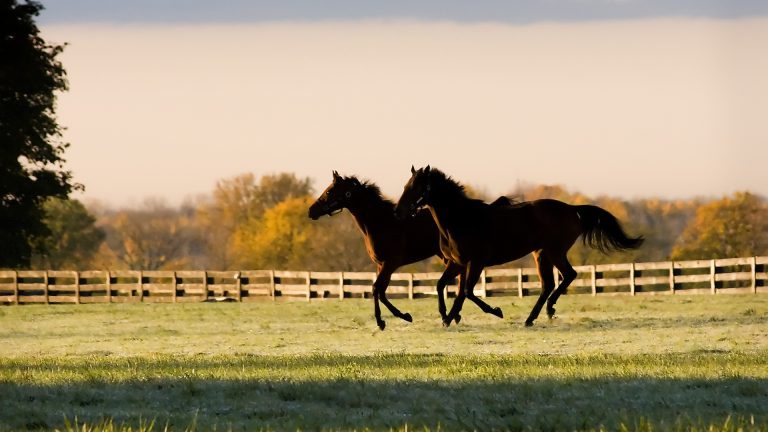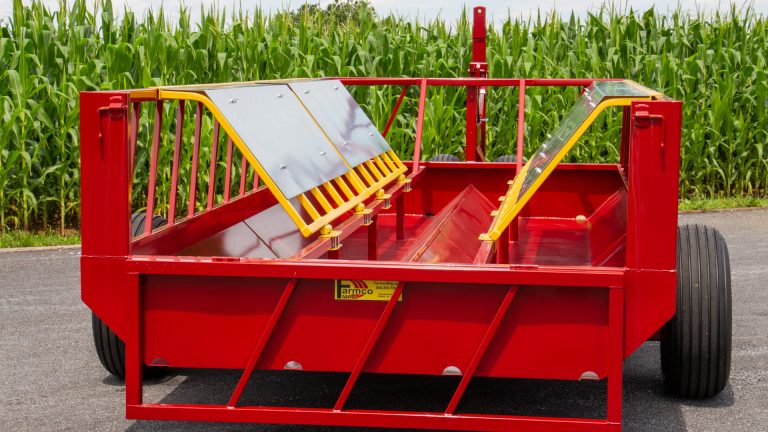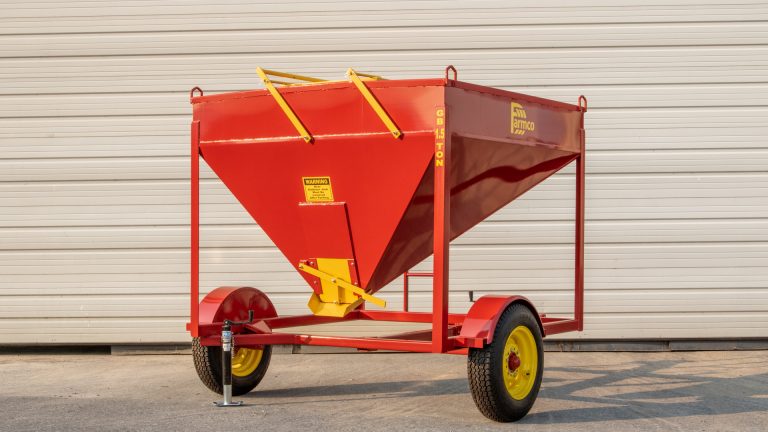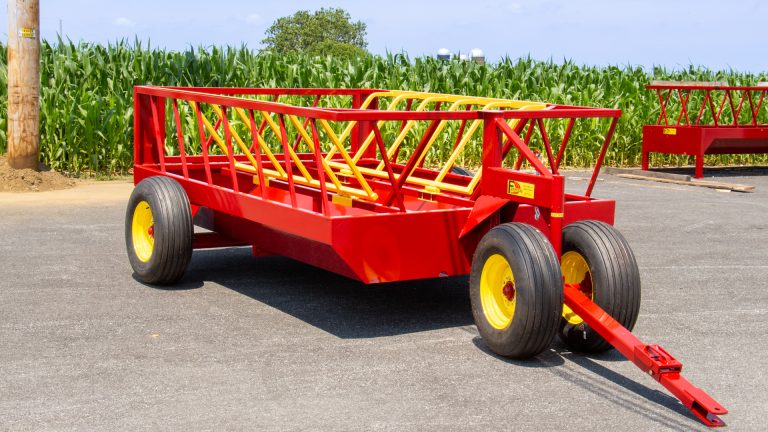Do you ever feel frustrated when your questions are not answered? Or do you ever feel that you have more questions than answers? The farm world is no exception to ideas, questions, and answers. Well, it’s time you got your questions answered about square bales of hay. There are plenty of square bale questions out there. Here are some answers.
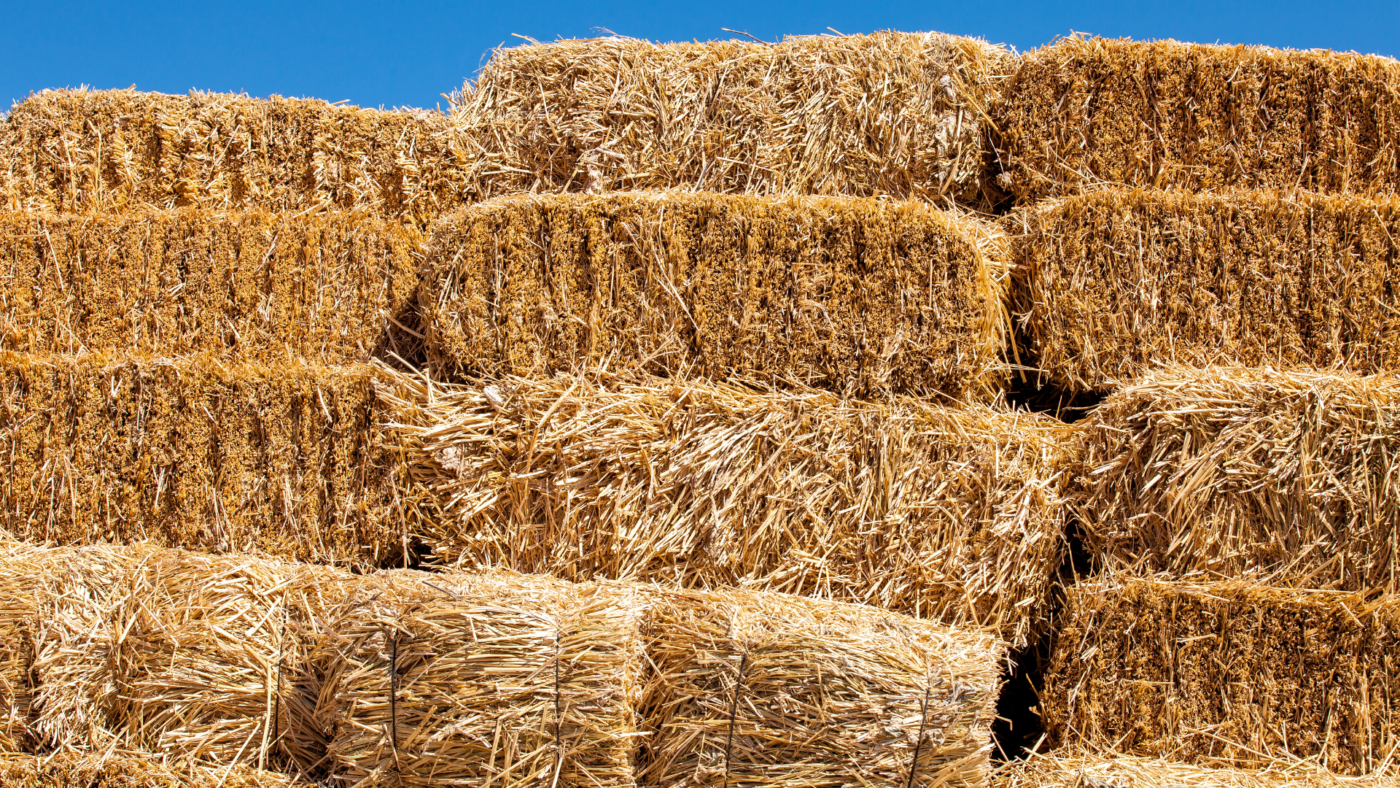
What Is A Square Bale?
Let’s start by answering this basic question. Obviously, a square bale of hay is hay baled in a rectangle. You may be wondering if there is a difference between round bales and square bales of hay. According to Sustainable, Secure Food Blog, round bales and square bales are essentially the same other than the machinery used to make them. Obviously, they’re not shaped the same either.
Here’s a little history about square bales. It used to be that after the hay was cut, dried, and put in rows, the baling equipment would go rumbling over the hay rows and make the square bales. Although they are still used today, square baling is not near as popular as it once was. It used to be that after the hay was cut, dried, and put in rows, the baling equipment would produce the square bales. The main reason is simply because of better technology. After round bale technology came around, labor efforts were drastically reduced. Now the long hours of stacking endless square hay bales were replaced with massive round bales. Nowadays, the older equipment may still produce square bales but a lot of the newer bale equipment makes round bales.
How Much Does A Square Bale Of Hay Cost?
This is obviously a question that will vary greatly. Some of the factors that would probably affect the cost of hay are time-of-year, location, hay quality–to name a few. But roughly, the cost of a small square bale of hay at 50 pounds would cost somewhere between $3-$10.
What Size Is A Square Bale Of Hay?
A square bale of hay can vary in size. Depending on the machine operator, a square bale of hay’s length can be adjusted. Although this may not be entirely across the board, square bales are around 32”-44” in length, 16”-22” in width, and 14”-16” in height.
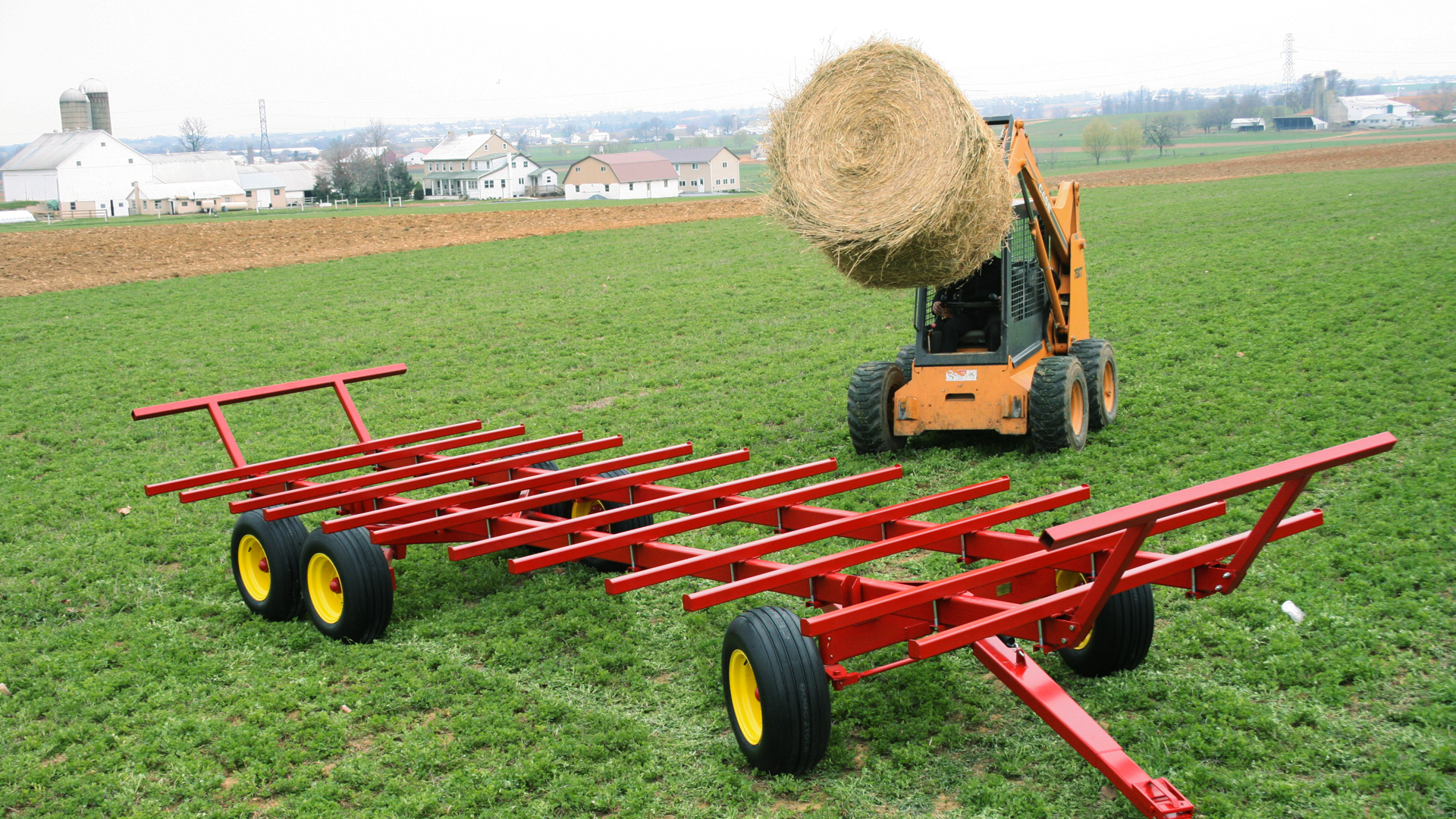
Square Bales vs. Round Bales…Which One?
You may be a little in the dark as to which is the best for your farm needs. Here are a couple of pros and cons to each.
Square Bales
We’ll start off with some square bale pros and cons.
Pros:
- Space-Efficient – Square bales of hay are well…square, which allows for easy storage and stacking.
- Higher Density – The bale itself is often higher in hay density.
- Lightweight – Although there is still a little bit of weight, small square bales are lightweight compared to round bales.
- Minimum Hay Waste – With small square bales of hay, there’s not near the hay waste as with a round bale.
Cons:
- Moisture Absorption – Small square bales of hay can easily absorb moisture, potentially causing mold or rot. Small square bales need to be stored under a roof.
- More Labor – If you have a fairly large farm, stacking a large number of square bales is a lot of extra labor.
Probably the best rule of thumb is that if you have a smaller farm, small square bales of hay may be the best way to go because of easy storage and minimal hay waste.
Round Bales
Round bale technology only started sometime in the 1970s, making it a fairly new technology in the grand scope of farming history. There are plenty of pros as well as several cons to round bales.
Pros:
- Equipment – Because round baling is probably the more popular method of baling, round bale equipment is easy to find and purchase.
- Efficiency – Round baling cuts out the labor of stacking square bale after square bale for hours on end.
- Ventilation – After they’re stacked, there’s a lot of unused space between round bales, which allows for a good amount of ventilation.
- Cost – Round balers are often cheaper than square balers.
- Feeding – Round bales can also cut out some of the time it takes to feed the livestock. What a farmer could do is let a round bale sit in the pasture for his animals to munch on for a while. A farmer has the option of simply placing a round bale out in the pasture and letting the livestock take care of the rest. Of course, this could also be done with square bales of hay, but a round bale is much larger and, therefore, takes more time to consume.
- Water Resistant – Although they can absorb moisture, round bales are less prone to absorbing a lot of moisture.
Cons:
- Transport – Due to their massive size, round bales are of course much more of a challenge to transport.
- Inefficient Storage – Round bales are much more inefficient to store.
- Hay Waste – There’s also much more hay wasted with round bales.
Well, there you go–the pros and cons to round and square bales of hay. While both have their advantages and disadvantages, one general factor to keep in mind when considering which type of bale to purchase is the size of your farm. If you have a huge farm, square bales of hay are not going to be efficient as they require a lot of extra labor. However, if you have a smaller farm, small square bales may be your best option.
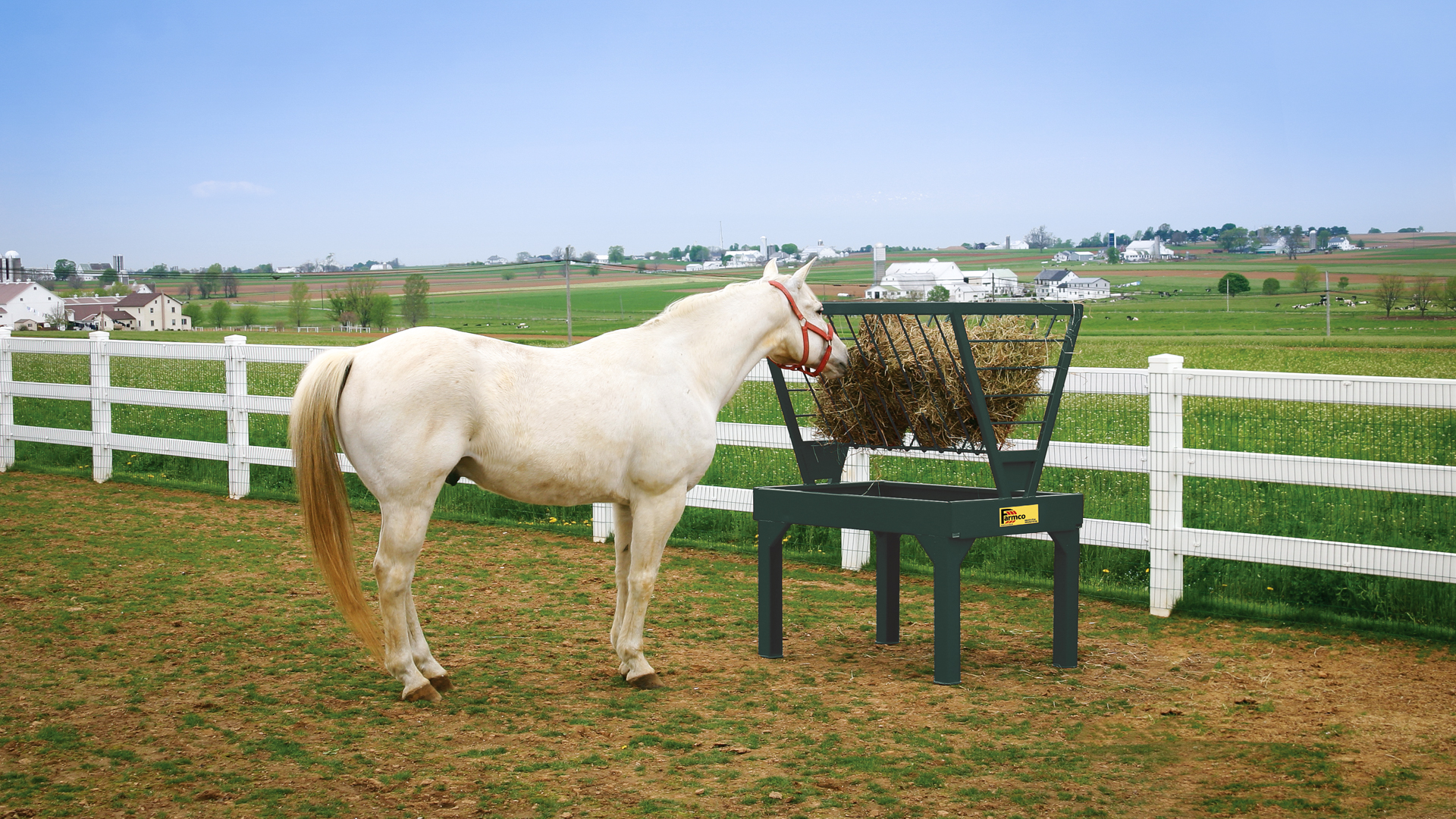
How Do You Feed Small Square Bales?
There are a couple of different ways you could feed the small square bales of hay to your livestock. We’ll explore three different ways. Speaking of feeding hay to horses, have you ever wondered if horse overeating is possible?
Round Bale Net
One way to feed small square bales is to cover several small square bales with a hay net. This video shows how a farmer used a Hay Chix® Roundbale Net to feed her horses.
Ground Feeding
Although probably not the best way, you could also just put a small square bale of hay on the ground for your livestock. Or another idea would be to place hay at different places throughout the pasture so that the manure is spread evenly and each horse could get their fair share of hay. However, the horses would probably trample the hay and cause some of the hay to go to waste.
Square Bale Feeder
A square bale feeder is another way. Because of the many different square bale feeder options out there, you shouldn’t have too much trouble finding one that will suit your farm. Here’s a square bale feeder option that you may find helpful.
Farmco Square Bale Feeder
Farmco’s Square Bale Feeder is a feeder for the hay with a pan for grain underneath. The result is a square bale horse feeder that can be used to feed hay, grain, or both simultaneously. For the hay rack part of the bunk feeder, we used 3/8” steel rods welded to a frame of rectangular 1/8” steel tubing. This bale rack is built to hold a full load of square bales – time after time after time. The entire feeder is supported by formed steel legs. The grain trough under the hay rack is built from 12-gauge steel, with drain holes in the corners to get rid of excess moisture. Less moisture = less wasted feed.
If you would like to learn a bit more about some of our metal hay feeders, our “Metal Hay Feeders: A Practical Guide” is a great resource. Want to know how to feed round bales to horses? Check out our article!
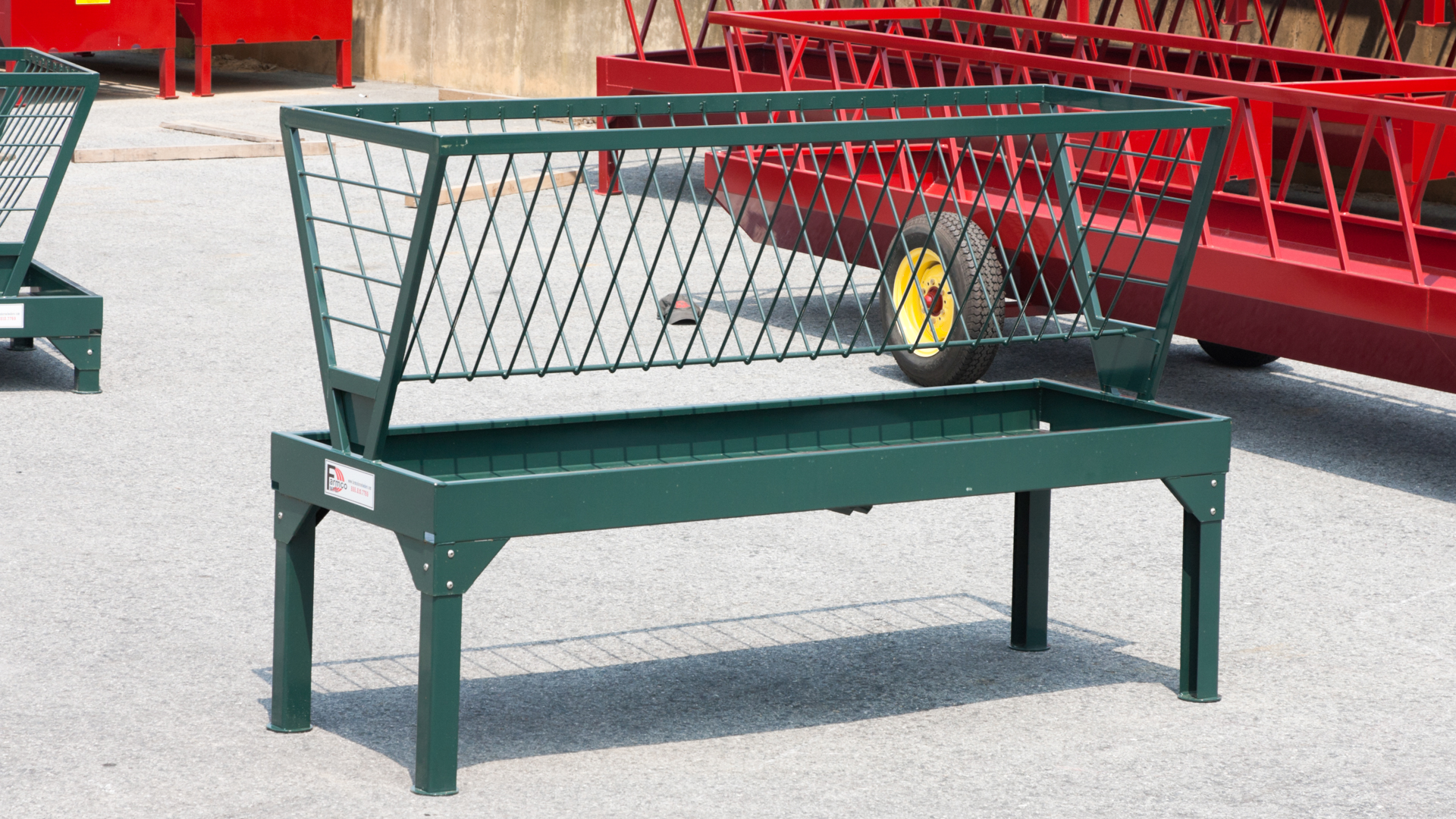
The grain pan also acts as a hay saver. Loose hay that falls from the hay rack will fall into the grain pan, saving it from becoming wasted on the ground.
Of course, this is not the only type of feeder that we offer. Feel free to browse our other feeders as well by visiting our website! Or if you’re not sure which feeder to purchase, “The Best Hay Feeders For Cattle: 2022 Guide” and “The Best Hay Feeders For Horses: 2022 Guide” are two great articles where you can read more about different types of high-quality hay feeders. Speaking of high-quality hay feeders, we also compiled a list of the top 10 best slow feeders for horses.
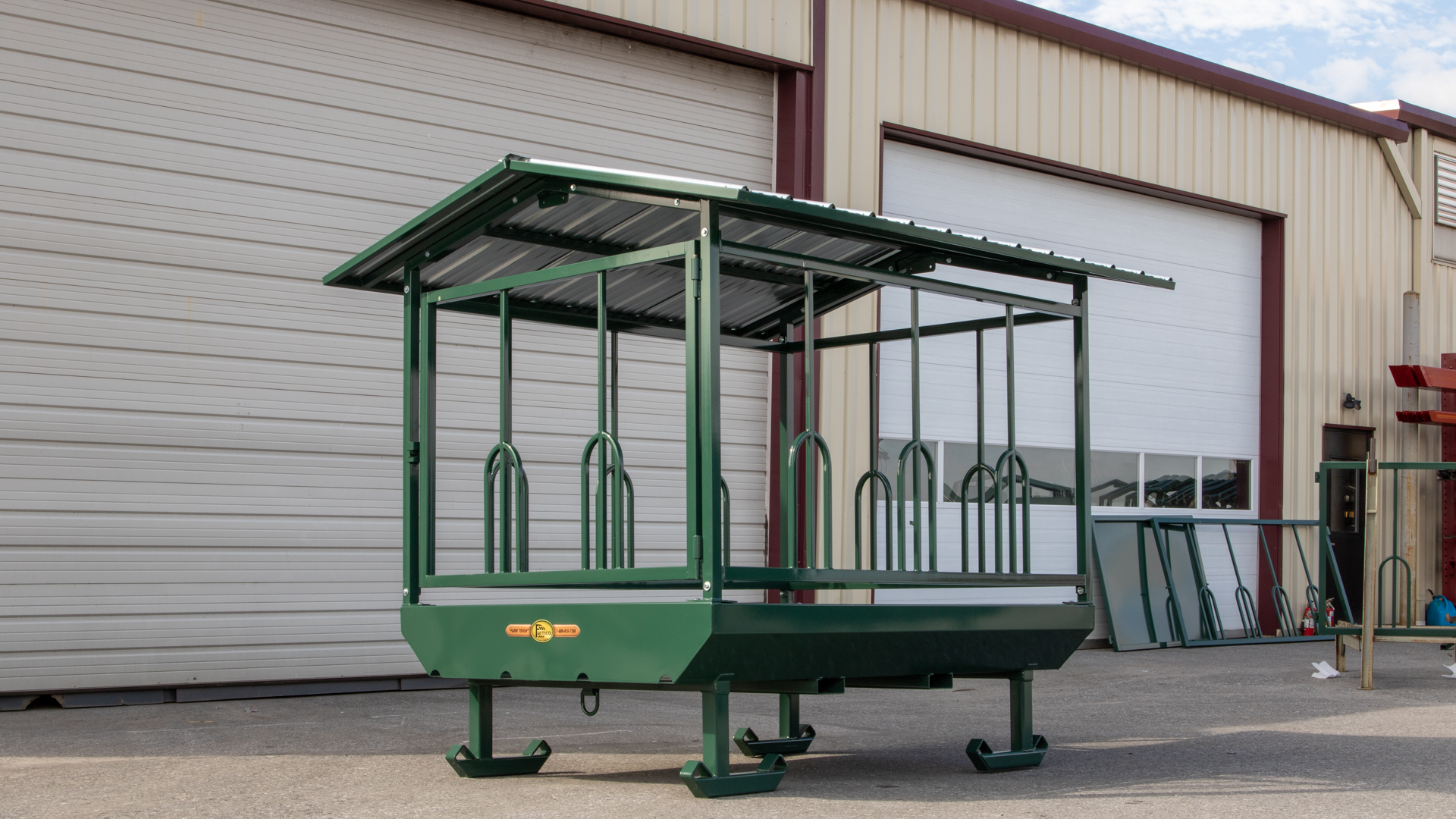
We’ll Call It A Day…
And there you have it. Just like you get a square meal after a hard day of work on the farm, we hope this article was a square meal of information about square bales of hay (also see our article on small grain bin sizes). From what a square bale is to methods of square bale feeding, hopefully, you’ll be able to use this information to improve your farm.


